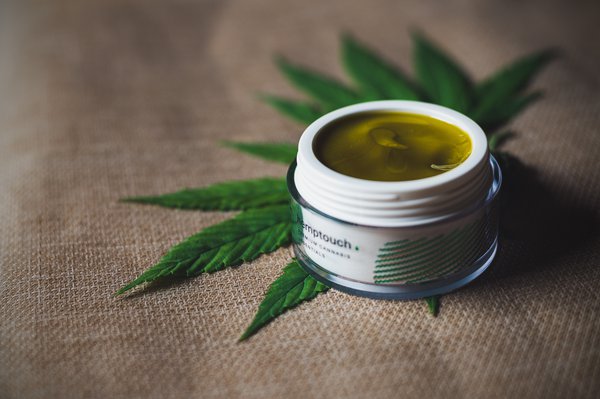The use of cannabidiol – otherwise known as CBD – and cannabis products for acne, psoriasis and other skin conditions continues to grow in popularity, but dermatologists warn there is a gap in what is known about the safety and effectiveness of these products.
One recent study found that 17.6% of a group of 500 adults said they used an over-the-counter cannabis product to treat a skin condition without a recommendation from a dermatologist. A large percentage of the participants also said that they were interested in trying the products.
- MORE HEALTH
- What patients can learn with confidence from one negative rapid test (Hint: very little)
- As omicron surges, effort to vaccinate young children stalls
- Community fridges rose from the pandemic to address hunger in Philly
CBD is one of many cannabinoids found in the cannabis plant, but on its own is not psychoactive. That is caused by tetrahydrocannabinol, or THC, the main active chemical in marijuana. CBD actually comes from the hemp plant, a cousin of marijuana, and is also often manufactured in a laboratory.
Dr. Adam Friedman, chair of dermatology at the George Washington School of Medicine and Health Sciences and one of the study authors, told U.S. News & World Report that it was time for the science to catch up to the demand.
In the study, published in the Journal of Drugs in Dermatology, 20% of the people who had seen a dermatologist were advised by their doctors to try a CBD product and almost 8% of them used medical marijuana.
According to Harvard Health, The Farm Bill made CBD legal in the U.S. as long as it comes from hemp and not cannabis.
Buying CBD even without a medical marijuana license is legal in most states. In Pennsylvania and New Jersey, residents don't need a prescription to buy CBD oil as long as it was directly derived from hemp. To purchase medical marijuana, residents must be given an approved card by their physicians.
What do we know so far?
There has been some early animal data on how these products could help treat inflammatory skin diseases, but more research is needed, Friedman said.
Some dermatologists say CBD and cannabis products can help reduce the inflammation and damage caused by conditions such as acne, psoriasis and eczema.
Promising data from small studies suggest that topical CBD products can combat inflammation, reduce skin itchiness and may even help any wounds heal. However, researchers have yet to offer a clear safety profile or nail down the best dose or formulation.
One 2014 study on human skin samples found that CBD compounds slowed excessive oil buildup, which is often at the root of acne breakouts. It also had anti-inflammatory effects on oil-producing skin glands.
Another study, published in the journal La Clinica Terapeutica, tested CBD-enriched ointment on scars related to psoriasis and atopic dermatitis. After applying the ointment to the scars twice a day for three months, the participants reported significant improvement in the appearances of their skin.
Based on the results of a 2005 study on hemodialysis patients with itchy skin, the Journal of the American Academy of Dermatology says CBD shows a lot of promise, particularly in the treatment of skin itchiness.
The World Health Organization considers CBD to be safe for most people, but reports that some side effects including fatigue, diarrhea and changes in appetite and weight, are possible. It is important to note that these side effects are largely reported in people who ingested CBD, not applied it to the skin.
Lack of regulation
Besides a lack of research on the safety and effectiveness of these products, health experts say the lack of quality control with CBD oil is another concern. This is because, unlike medical marijuana, these products are not regulated by the U.S. Food and Drug Administration.
People who are considering purchasing one of these products are advised to look at all the ingredients to make sure the product does not contain anything they might be sensitive to. They also should review the product's Certificate of Analysis, if available.
The document includes any testing that has been done on the product. Certificates of analysis can often be found online, but most companies will provide them directly if requested. People are advised to buy from companies whose products are tested in independent laboratories.
Dermatologists emphasize that people should never use these products as a replacement for any prescribed treatment for a skin disease. Additionally, when using them, people should do a patch test first to check for any reactions to the products' ingredients.


